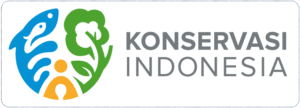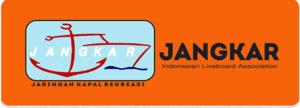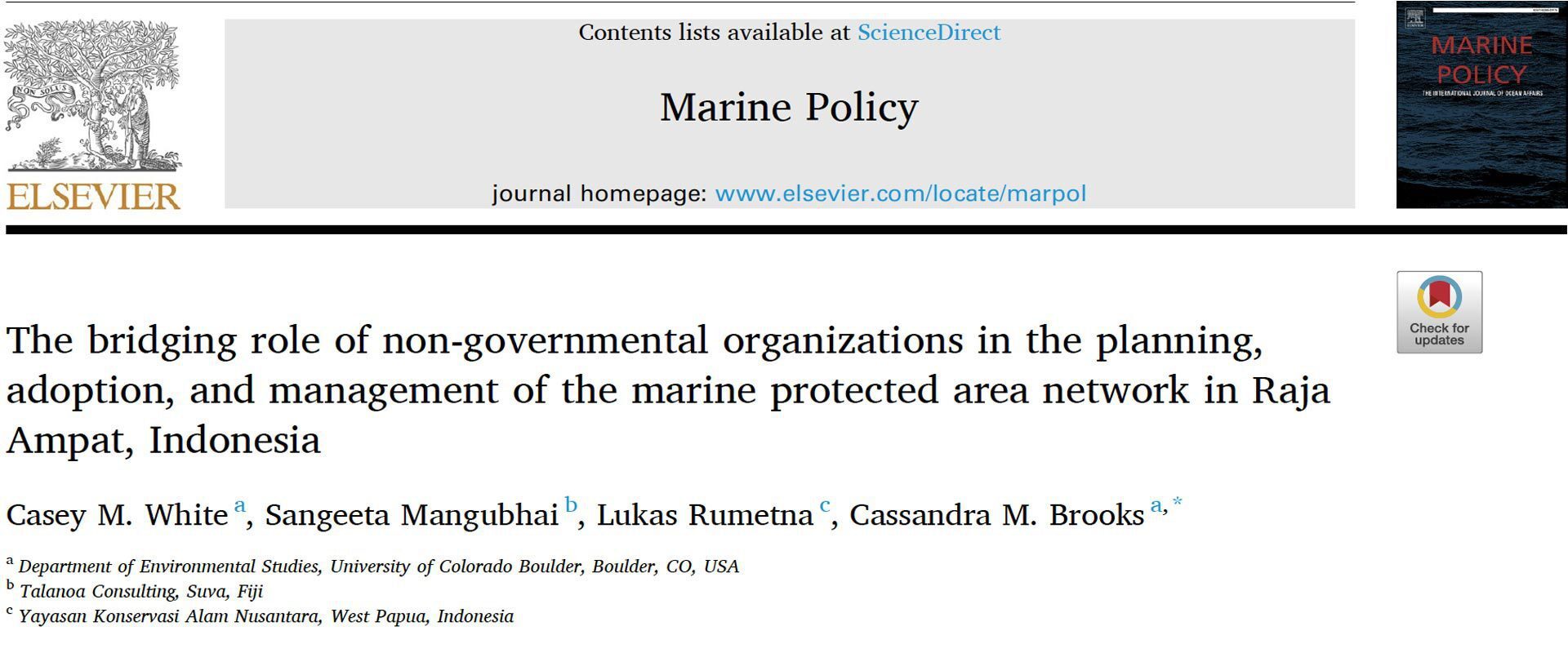Marine Policy: NGO’s Working with Local Communities and MPA’s is a Win-Win for Everyone! by Casey White
[The marine environment surrounding Raja Ampat harbors some of the world’s most biodiverse coral reef ecosystems, and communities have been helping to protect these ecosystems for centuries. Two international non-governmental organizations (NGOs), Conservation International and The Nature Conservancy, recognized the remarkable biodiversity and helped communities establish a Marine Protected Area (MPA) Network, MPA Patrol System, and Conservation Trust Fund to further protect the marine biodiversity from outside threats. We conducted a case study to better understand how the communities of Raja Ampat have protected these marine environments for centuries, and learn more about the relationship between international NGOs and community members.
The Marine Protected Area Network was established between 2007 and 2008, and by 2010, initial assessments of MPA familiarity and trust showed that 93% of respondents felt an MPA would be beneficial for their family. Tourism also increased as a whole from 2007-2019, and two new MPAs were added to the Network – the process initiated by the communities themselves. From 2012 through 2019, illegal fishing and destructive fishing decreased overall with the exception of the North Raja Ampat islands which had had a slight increase in destructive fishing only, and biomass increased in the Northern Raja Ampat islands in both no-take zones and sustainable use zones, and Southern Raja Ampat islands saw increases in their sustainable use zones.
Overall, we found that TNC and CI worked closely with the communities of Raja Ampat by improving access to education, helping communities adapt to unforeseen changes, co-producing knowledge, and helping to build capacity through education and training. These ‘bridging techniques’ helped create a strong MPA Network for the communities and ecosystems of Raja Ampat that remains strong today! Increased exposure from TNC and CI has led other marine-focused NGOs to the waters of Raja Ampat, and we hope that the incredible work being done by the local community members alongside NGOs will create a successful and prolific ecosystem for generations.
Read the Marine Policy case study here, “Bridging the Role…”





































